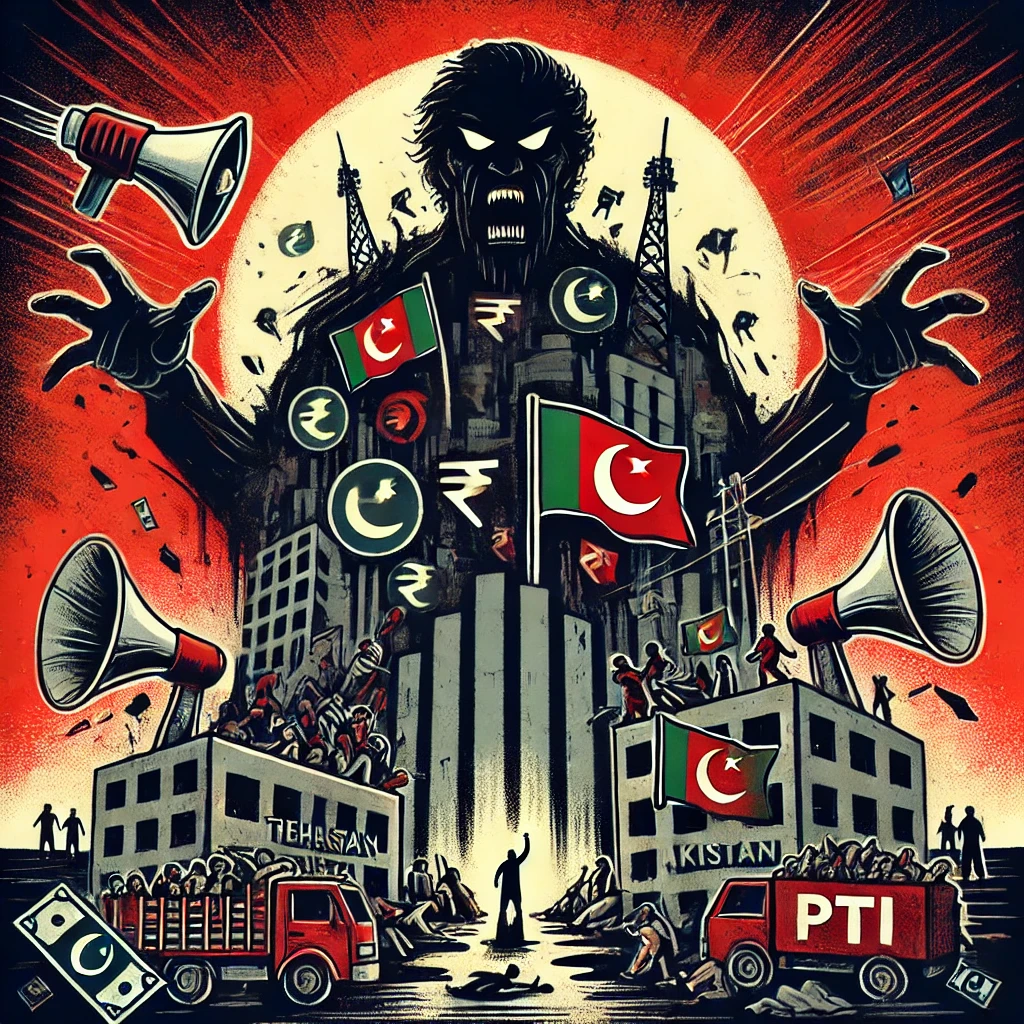When Pakistan Tehreek-e-Insaf (PTI) was founded in 1996, it gave people hope for a fresh start. Led by the iconic cricketer Imran Khan, PTI promised justice, accountability, and an escape from decades of misrule by dynastic parties. Back then, many believed it was the answer to Pakistan’s deep-rooted problems. The country had been grappling with corruption, political instability, and economic turmoil, and PTI seemed like a ray of hope.
But fast forward a couple of decades, and that optimism has faded into disillusionment. PTI has become what I would call a “political plague,” infecting the nation with divisive narratives, unfulfilled promises, and governance that raised more questions than solutions.
The Propaganda Machine
A major turning point in PTI’s journey was how it mastered the art of propaganda. Social media became its battleground, with platforms like Twitter and Facebook serving as tools to push a one-sided narrative. Supporters were bombarded with glorified portrayals of PTI’s leadership and exaggerated claims about its achievements. Meanwhile, anyone questioning the party was labeled an enemy of the state or worse, part of some foreign conspiracy.
Instead of bridging divides and fostering meaningful debate, PTI weaponized social media to polarize society. Supporters, often referred to as “Insafians,” clung to the illusion of PTI’s infallibility, refusing to acknowledge its growing list of failures.
Governance Woes
PTI’s time in power from 2018 to 2022 was marred by mismanagement. While its leaders kept pointing fingers at previous governments, the harsh reality of their own shortcomings became impossible to ignore.
Economic Turmoil: Inflation spiraled out of control, and the Pakistani rupee took a historic plunge. PTI borrowed heavily, but instead of strengthening the economy, the debt burden left the nation teetering on the edge of collapse.
Foreign Policy Confusion: PTI’s rhetoric often sounded bold, especially its critique of the West. Yet its actions showed reliance on the same foreign actors it criticized. Missteps in diplomacy left Pakistan isolated on the global stage.
Institutional Undermining: PTI’s interference in independent institutions eroded trust. From sidelining the judiciary to cracking down on the media, it often seemed more focused on consolidating power than upholding democracy.
A Foreign Agenda in Disguise?
One of the most damning criticisms of PTI is its alleged alignment with foreign agendas. While it spoke of sovereignty and independence, its policies often mirrored external pressures. Take, for example, its dealings with the IMF. The economic measures enforced under IMF conditions disproportionately impacted ordinary Pakistanis, contradicting PTI’s promises of relief for the poor.
PTI’s anti-American rhetoric, which resonated with many of its supporters, was often hypocritical. While it blamed the U.S. for meddling in Pakistan’s affairs, it sought their approval in critical matters. This contradiction wasn’t lost on observers but was cleverly concealed from its loyal base.
Blind Faith: PTI’s Biggest Weapon
PTI’s most dangerous feature isn’t its policies or propaganda it’s the blind loyalty it inspires. The party has turned its followers into a cult-like force, where questioning the leadership is unthinkable. Supporters are so invested in the narrative of PTI being the only hope for Pakistan that they refuse to see its failures or acknowledge the damage it’s causing.
This unchecked devotion has created a toxic political environment. Instead of addressing real issues like poverty, unemployment, or education, PTI keeps pointing to conspiracies and external enemies. This not only distracts from its failures but also ensures its followers remain disillusioned about the truth.
A Nation at Risk
PTI’s tenure and its aftermath have left Pakistan more divided than ever. Its populist rhetoric and polarizing tactics have created a society where dialogue is replaced by accusations, and facts are overshadowed by emotions. By sowing division and failing to deliver on its promises, PTI has paved the way for chaos.
Like a plague, its influence has spread unchecked, infecting institutions, policies, and even public discourse. If Pakistan doesn’t recognize and address this problem, the consequences could be catastrophic.


